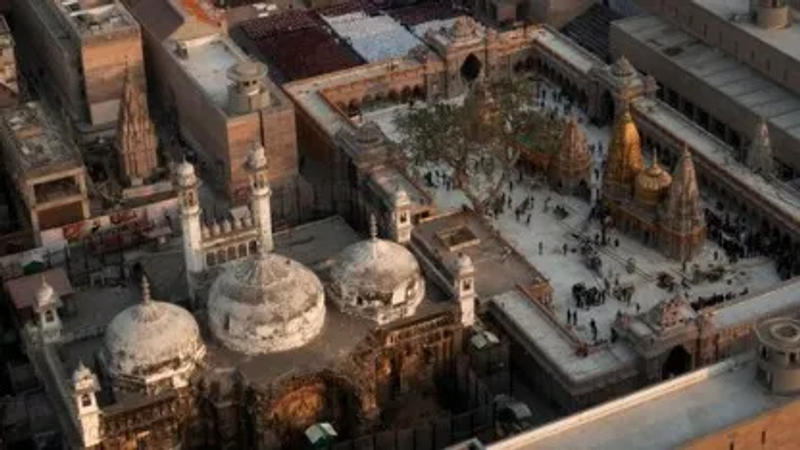Published 15:18 IST, January 24th 2024
Gyanvapi Case: ASI Survey Report To Be Made Public, Hindu Side Claims 'Big Victory'
Gyanvapi ASI survey report filed in fast-track court on Wednesday.

New Delhi: The Archaeological Survey of India (ASI) has announced that the long-awaited report on the Gyanvapi Mosque will be made public. The Gyanvapi ASI survey report was filed in fast-track court on Wednesday. The trial in the case started on the instructions of the High Court. Moreover, the next hearing on Gyanvapi case will be held on February 6.
Advocate Vishnu Shankar Jain, representing the Hindu side, said, "The court listened to both sides today. After hearing both sides, an agreement was reached that a certified copy of ASI's report be made available to both sides. As soon as the court passes the order, our legal team will apply for the certified copy..."
Notably, a decision on whether the sealed report of the Archaeological Survey of India (ASI), on the Gyanvapi mosque complex should be made public, was to be announced on January 24. A Varanasi court on Saturday fixed the January 24 date to decide whether the copies of the sealed ASI report should be provided to both the parties.
According to news agency PTI, District Judge AK Vishvesh fixed the date to decide on the issues on Saturday.
Madan Mohan Yadav, counsel for the Hindu side, said that the Hindu and Muslim sides and the Archeological Survey of India (ASI) were present in the court. The court said it will decide the issue after the hearing in the matter before the Civil Judge of the senior division fast track court takes place.
Earlier, the Archaeological Survey of India presented a survey report on the Gyanvapi mosque complex to the district court of Varanasi in a sealed cover. During the submission of the report, four high-ranking ASI officials were in attendance in court.
The ASI received several extensions to finalize the survey.
The ASI conducted a scientific survey of the Gyanvapi complex, situated adjacent to the Kashi Vishwanath temple. The objective was to ascertain whether the mosque was built atop the remains of a pre-existing Hindu temple structure. This survey was initiated in response to the district court's directive on July 21, instructing an examination beneath the mosque's domes, cellars, and the western wall.
Updated 17:20 IST, January 24th 2024




